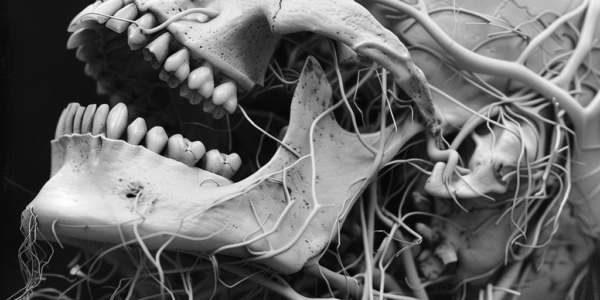Researchers Unveil Comprehensive Human Cell Map in Medical Breakthrough
Researchers have unveiled a groundbreaking map of human body cells as part of the Human Cell Atlas project, aiming to enhance understanding of health conditions and diseases, particularly cancer. This high-resolution, open-access atlas will serve as a vital resource for future medical research, potentially leading to significant breakthroughs in treatments and health outcomes.
Study Reveals Detrimental Effects of Space Travel on Human Body
Recent study published in Nature Communications reveals detrimental effects of space travel on the human body, including immune system dysregulation, muscle changes, and increased cytokine production. Research based on data from SpaceX Inspiration4 mission highlights complex impact of spaceflight on human health, with potential biological advantages for women. Further investigation needed to understand long-term implications.
Generation Z Facing Decline in Sexual Activity: Experts Concerned About Health Impact
Recent studies have shown that Generation Z individuals of legal age are engaging in less sexual activity than any previous generation, raising concerns about potential negative impacts on physical and mental health. Prolonged sexual inactivity can lead to rare conditions like penile atrophy and increased stress levels due to sexual frustration. Experts warn that lack of sexual activity can have detrimental effects on the human body, emphasizing the importance of affection, touch, and sexual connections for mental well-being. Seeking professional guidance and support is crucial to address concerns related to sexual activity and overall health.
Research Reveals Role of Stochastic Variation in Developing Aging Clocks
Recent research by David H. Meyer and Björn Schumacher has highlighted the role of accumulating stochastic variation in developing aging clocks, providing valuable insights into the aging process and potential treatments for age-related conditions. Their study emphasizes the significance of accurate aging clocks in assessing interventions and preventive measures for age-related diseases, shedding light on the interplay between programmed and stochastic elements in the aging process.
The Benefits of Walking and Diverse Movement Patterns for Overall Well-Being
Discover the health benefits of walking and how achieving 2,300 steps per day can lower the risk of cardiovascular disease-related mortality. Despite its advantages, some experts argue that walking may not qualify as high-quality exercise. Learn about the three essential forms of movement necessary for overall well-being and why incorporating diverse movement patterns into daily routines is crucial for achieving functional fitness.
Study Reveals Metabolic Mechanisms Behind Anti-Inflammatory Effects of Glucocorticoids
A recent study published in Nature has revealed the metabolic mechanisms behind the anti-inflammatory effects of glucocorticoids, offering potential insights for the development of new anti-inflammatory drugs. The research delves into the molecular processes through which glucocorticoids exert their anti-inflammatory properties, shedding light on the reprogramming of mitochondrial metabolism in macrophages and the enhanced production of the anti-inflammatory metabolite itaconate. These findings have far-reaching implications for the development of new anti-inflammatory drugs and could lead to more effective treatments for immune-mediated inflammatory diseases.
Captivating Images of the Human Body
Explore a collection of astonishing photos that provide a glimpse into the extraordinary aspects of the human body, from MRI kisses to rare medical conditions. These captivating images showcase the resilience, uniqueness, and occasional quirks of the human body, offering a reminder of its awe-inspiring complexity.
Study Reveals Trigonelline’s Role in Improving Muscle Health and Function, Particularly in Aging
A recent study led by Nestlé Research and NUS Medicine has found that trigonelline, a natural molecule found in coffee, fenugreek, and the human body, can improve muscle health and function, particularly in aging. The study’s international collaboration revealed the association of serum trigonelline levels with mitochondrial and NAD+ metabolism in skeletal muscle, offering new insights into potential strategies for addressing age-related muscle decline.
Harvard study reveals inner workings of fruit fly brain compass
A recent study at Harvard Medical School has revealed how the brain’s internal compass and steering regions in fruit flies collaborate to guide navigation and make real-time course corrections. The research provides valuable insights into how the internal compass directly drives behavior, shedding light on the complex process. By examining the brains of fruit flies deliberately thrown off course, researchers identified three distinct groups of neurons facilitating communication between the compass and steering regions, assisting the flies in correcting their course. The study’s implications extend beyond fruit flies and could serve as a foundational framework for future research on how brain signals translate into actions in more complex species, including humans.
The Significance of Skin as an Indicator of Overall Health
The skin, our largest organ, provides valuable insights into our overall well-being. Conditions like Lyme disease and purpura can manifest as rashes, offering early detection of underlying health issues. Paying attention to changes in the skin can help individuals safeguard their health and well-being.










